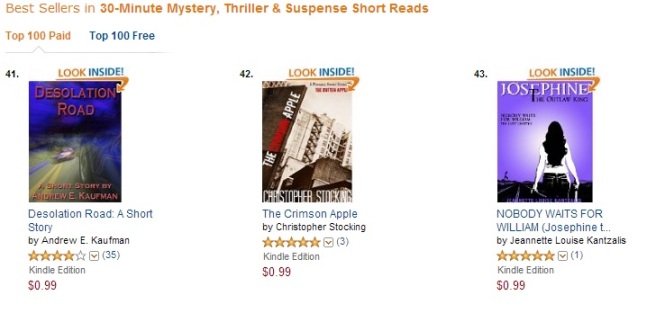When I started writing some years ago–writing seriously, that is–I was, admittedly and not surprisingly, naively curious about, well, everything related to writing. I gravitated to bigger writing blogs and came upon one in particular full of budding writers thirsty for advice on how to be a successful author. The blog’s owner, who was plenty experienced, sure, preached with utmost certainty that if we wanted to be successful writers that we absolutely needed to have a blog as a platform to reach out to the voracious readers ready to devour our books. Certainly not bad advice at all, so I logged a new blog post just about every day. Full of new experiences to share with the world, the words flowed in my books as well as on the blogosphere.
And yet, over time, the blog posts slowed, but the writing did not. It seemed that, perhaps, I had learned a sufficient amount to continue without regurgitating what I had already said before–something I noticed the blog mentioned above seemed to do, just in different words–I published a few more books, and the blog posts essentially came to a halt. Book sales continued to trickle, seemingly with no change whether I blogged or not.
Flash forward to a few days ago when a blog post from Chuck Wendig soared into my inbox all about how, really, writer’s don’t need to blog. Blogging should be something you want to do, not something you should feel badly about not doing. It detailed about how if you’re told agents will only take writers who blog and have massive blogging platforms, then you’ve been lied to, and that publishers should, and will, work with writers to combine their marketing efforts. I’ve also seen, and posted, my fair share of posts apologizing for not posting followed by empty promises to blog more, only to have my blog fall a bit stagnant again. That’s when I realized what needed to happen. I needed to rediscover that bit of enjoyment I received from blogging. At first, I was learning so much about writing all the time that I always had something new to talk about.
Mr. Wendig also touched upon this gem: Writers don’t need to blog about writing. As consumed as we are by the craft, blogging should be an outlet, an outpouring, even, of things we find interesting. Of things we love and enjoy. Certainly that includes writing, but us creative beasts have more interests that just writing, so I’m aiming to really explore deeper into the things that interest me and what I have to say about them. A few things I plan to talk about (and would love to discuss with you):
Philosophy – A few months ago I discovered a hidden love for philosophy. Searching ourselves to find out who we are beyond the basic ideals is something I find really interesting. Discovering, discussing, and debating the implications of our actions, the inevitable aspects of our life–death, love, to be human–is something that I’ve been implementing in my own writing, and it’s something I’d like to explore more.
Being a father – My son, Harvey, recently turned three months old, and I find it more difficult every day to remember what it was like before he arrived. So much happened that surged my life forward in the past 12 months, and he is certainly the biggest part of it.
Speaking of life surging forward, I finally landed a full-time job using my college degree. A couple of weeks ago I accepted a position as the communications specialist at a company called CDS Monarch, which is a not-for-profit organization that provides services for intellectually and developmentally disabled individuals, veterans suffering from PTSD, traumatic brain injury, and/or military sexual trauma, and seniors. It’s a lot of great work, and an organization that helps a lot of people. So, if you’ll excuse this shameless plug, check us out on Facebook and Twitter. I will certainly be talking about this some, too, as well as some of the great new marketing and public relations skills I learn.
So, I’ll leave you with that. I’m sure I’ll stumble upon other things to talk about, but I’m looking forward to the future of this blog.
Also, make sure you scroll down and read the great guest posts from Wednesday. There’s some awesome content from some awesome people.
Take care, and to those who celebrate: Happy Easter.


 KACEY VANDERKARR is a young adult author. She dabbles in fantasy, romance, and sci‐fi, complete with faeries, alternate realities, and the occasional plasma gun. She’s known to be annoyingly optimistic and listen to music at the highest decibel. Kacey is president of the Flint Area Writers and the Social Media Director for Sucker Literary. When she’s not writing, she coaches winterguard and works as a sonographer. Kacey lives in Michigan, with her husband, son, and crazy cats. In addition to her novels, Antithesis, Reflection Pond, and Poison Tree, Kacey’s short fiction is featured in Sucker Literary Vol III, Out of the Green: Tales from Fairyland, Ember: A Journal of Luminous Things, and will appear in the forthcoming Spark Vol VII.
KACEY VANDERKARR is a young adult author. She dabbles in fantasy, romance, and sci‐fi, complete with faeries, alternate realities, and the occasional plasma gun. She’s known to be annoyingly optimistic and listen to music at the highest decibel. Kacey is president of the Flint Area Writers and the Social Media Director for Sucker Literary. When she’s not writing, she coaches winterguard and works as a sonographer. Kacey lives in Michigan, with her husband, son, and crazy cats. In addition to her novels, Antithesis, Reflection Pond, and Poison Tree, Kacey’s short fiction is featured in Sucker Literary Vol III, Out of the Green: Tales from Fairyland, Ember: A Journal of Luminous Things, and will appear in the forthcoming Spark Vol VII.









